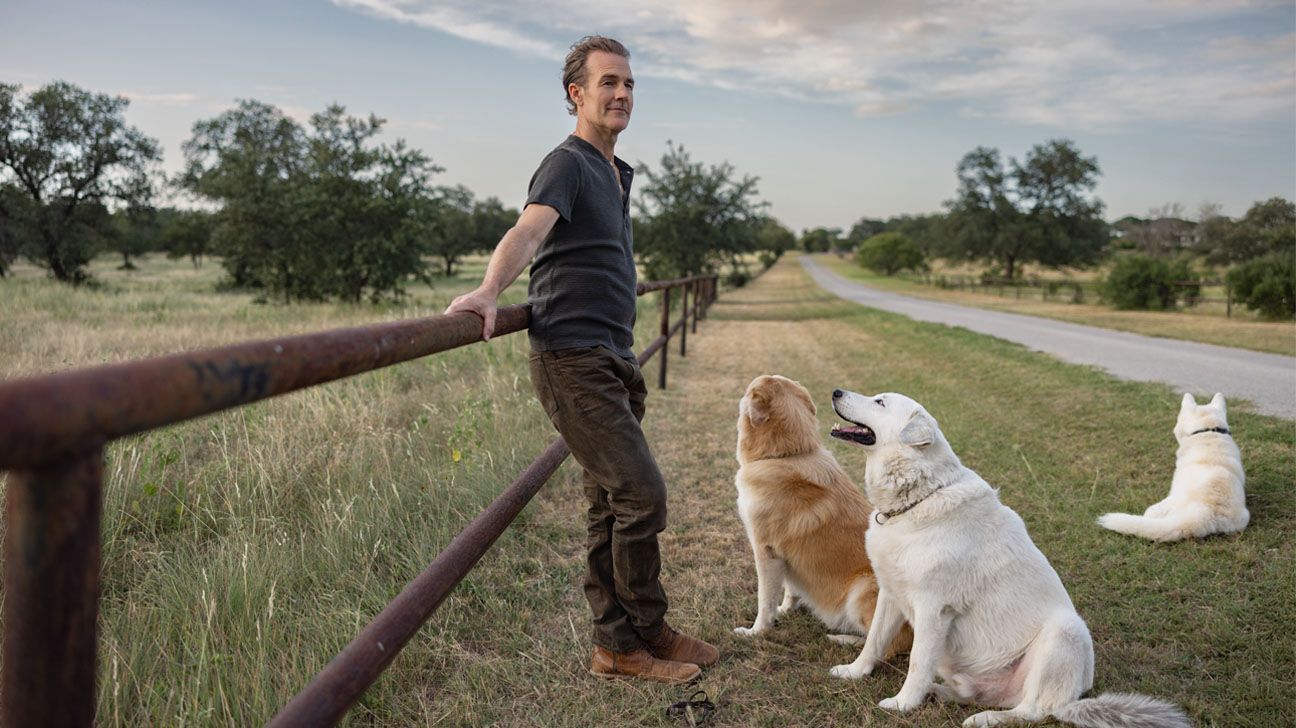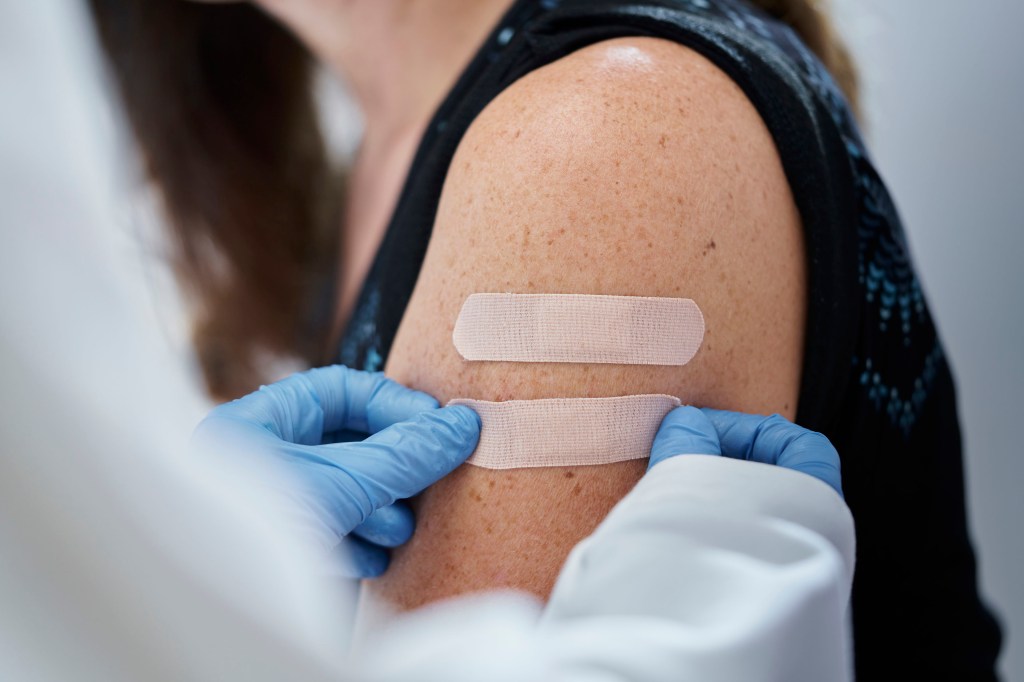Healthline News RSS Feed – Read More

- James Van Der Beek shares his journey with early onset colorectal cancer after being diagnosed at 46.
- The former “Dawson’s Creek” star is spreading awareness about the rising cases of colorectal cancer in young people.
- Van Der Beek teamed up with Guardant Health to inform others about the importance of colon cancer screening and early detection.
At 46 years old, actor James Van Der Beek noticed minor changes in his bowel movements.
“There wasn’t any red flag or something glaring,” he told Healthline.
However, out of caution, the “Dawson’s Creek” star felt the need to see his doctor. After undergoing a colonoscopy in August 2023, Van Der Beek learned he had colorectal cancer.
“I was healthy. I was doing the cold plunge. I was in amazing cardiovascular shape, and I had stage 3 cancer, and I had no idea,” he said.
Because his cancer occurred before age 50, it is considered early onset colorectal cancer. Rates of early onset colorectal cancer in the United States have nearly doubled since the early 1990s. In 1994, the incidence rate was 4.8 cases per 100,000 people, and in 2021, it rose to 10.1 per 100,000 people.
“With this upward trend of 2–4% annually, gastroenterologists and colorectal surgeons are very concerned that we may not be capturing the full scope of the disease early enough, particularly in asymptomatic younger individuals who do not meet traditional risk-based criteria,” Paul Johnson, MD, surgical oncologist with Methodist Le Bonheur Healthcare, told Healthline.
In 2018, due to the alarming rise in the incidence of young-onset colorectal cancer, the American Cancer Society lowered the screening age for average-risk patients from 50 to 45. In 2021, the U.S. Preventive Services Task Force (USPSTF) echoed this recommendation, stating that colon cancer screening should begin for all adults ages 45–49.
A research letter published on August 4 in JAMA Network notes that the 50% increase in colorectal cancer incidence from 2021 to 2022 is likely a reflection of the recent changes to colon cancer screening guidelines for adults under 50.
Getting screened for colon cancer can lead to early detection, which improves survival and decreases the likelihood of needing chemotherapy, immunotherapy, or radiation, Johnson noted. When colorectal cancer is caught in early stages, survival is over 90%. A doctor can help determine if a stool-based test that looks for cancer is the best option or if a colonoscopy, which examines the colon and rectum, is best.
“The proverb ‘an ounce of prevention is worth a pound of cure’ is very apropos because we know that if we remove polyps, an abnormal growth in the lining of the colon or rectum, we can interrupt the pathway of that polyp becoming cancer,” Johnson said.
While colonoscopy remains the gold standard of screening and can detect polyps with remarkable accuracy, he said, the procedure also allows doctors to remove the polyps on the spot, thereby preventing development into cancer.
However, he noted that newer options, such as stool DNA-based colorectal cancer screening tests and the FDA-approved blood-based test Shield, have introduced additional options.
To encourage people to get screened, Van Der Beek partnered with Guardant Health to raise awareness about the Shield blood test. “I really want to impress upon people that you don’t need symptoms to get screened. If you are 45 or older or have a family history, talk to your doctor about your screening options,” he said.
Healthline talked with Van Der Beek to hear more about his cancer journey and why he is speaking out.
This interview has been lightly edited and condensed for clarity and length.
What should people to know about colon cancer?
Van Der Beek: I want to unpack the numbers. It is the second leading cause of cancer death, but if you look closer, it’s also the most curable.
I really want people to understand that [when found] in the early stages, the survival rates skyrocket.
Before my diagnosis, I didn’t know much about colorectal cancer. I didn’t even realize the screening age dropped to 45; I thought it was still 50.
Just put [screening] on your radar, even if you’re young, even if you’re healthy because unfortunately cases are rising, especially in younger, healthier people.
Did your diagnosis give you a new perspective on life?
Van Der Beek: Oh, for sure. I think I take things a little bit more slowly. I think I’ve learned to really appreciate the small moments and to let go of the things that would’ve upset me prior.
It’s really taught me a lot about myself, how important self-love is, and how important positive self-talk is. It’s really made me take a good, hard look at who I am.
How did your cancer diagnosis affect your mental health?
Van Der Beek: It is challenging. In the beginning, one thing I used to say a lot was, “This is harder than I thought it would be.”
I would say find out who you can lean on and ask for help. Really find who your people are and reach out. You can’t do this alone.
That was the biggest [challenge] for me because I never asked for help. And what I realized was just how many people were there to show up for me, how I’d been wronging them of the opportunity to show up because I try to do everything all the time.
How important is preventive healthcare?
Van Der Beek: Colorectal cancer just wasn’t on my radar before, so yeah, I’ve got a much greater awareness and I’m the one telling all my friends to talk to their doctor, find out about screening options.
What I love about the Shield test is it’s convenient, simple, FDA approved — it’s a simple blood draw and it could be done at your next doctor’s appointment.
Obviously, colonoscopy is still the gold standard for screening, but for anybody who has barriers around that, what they found is that adherence to a colonoscopy recommendation is not that great.
But people are three times more likely to adhere to [screening] advice when it’s just a blood test. It’s convenient for people who either can’t take off work to do a colonoscopy or who [face] other barriers to some of the other testing methods.
How does it feel to share your cancer journey?
Van Der Beek: It is really life affirming. I feel like it’s a big part of my healing process to spread the word and to help anybody I can from having to go through what I have been through.
Using a platform for a purpose is definitely a lot more fun than trying to push my next project, which I’m not above doing. [I] get to spread the word and feel like everything I’ve been going through has purpose.





